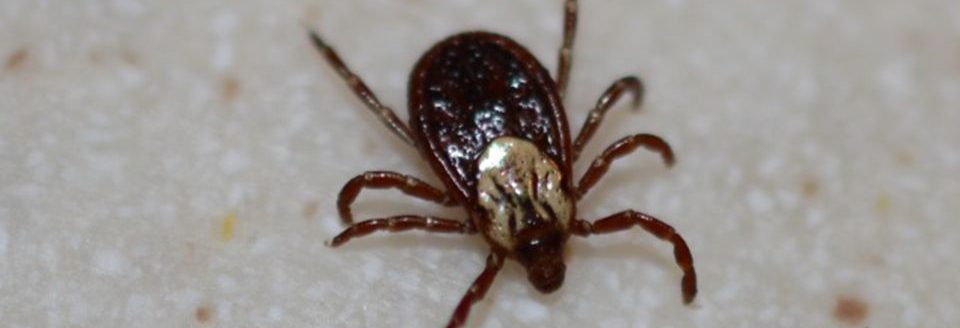Entomologist clears up myths about chiggers and ticks
In the new edition of Short Talks From the Hill, a podcast from the University of Arkansas, Ashley Dowling explains exactly what happens when chiggers bite us.
“They do not burrow into our skin,” Dowling says in the podcast. “When they get on us, they basically make a wound in the skin. They’re not feeding on blood even, they’re just feeding on skin cells. So they make a little wound, and then they inject enzymes through saliva, which dissolves the skin cells, and then they’re basically slurping that up.”
Dowling is an associate professor of entomology for the University of Arkansas System Division of Agriculture and the Dale Bumpers College of Agricultural, Food and Life Sciences. Researchers in his lab study micro-arthropods, focusing specifically on mites.
In the podcast, he describes chiggers as a type of mite called a velvet mite, which, during the larvae stage, feed on humans and other species, and then later become colorful and “charismatic” as adults.
Dowling also studies ticks. In the podcast, he discusses an important citizens-science project designed to reduce tick-borne diseases in Arkansas.
Listen to podcast
To learn more about Dowling’s research and these pesky pests, go to ResearchFrontiers.uark.edu, the home of research news at the University of Arkansas. Listeners can also find Short Talks From the Hill podcasts under the “Local & Podcast” link at KUAF.com.
Short Talks From the Hill highlights research and scholarly work at the University of Arkansas. Each segment features a university researcher discussing his or her work. For more information and additional podcasts, click on the Multimedia link at ResearchFrontiers.uark.edu.

